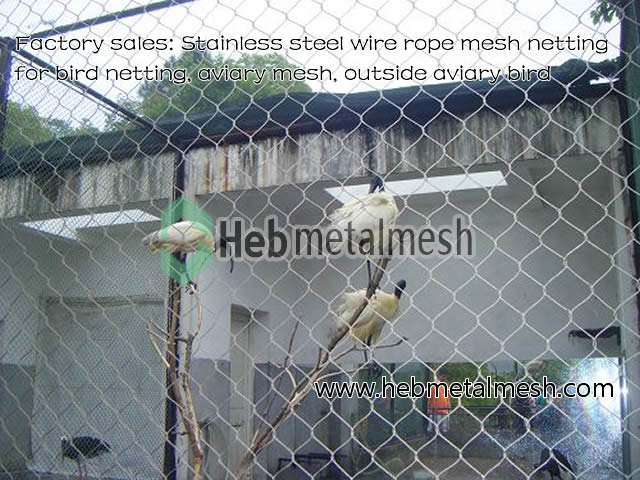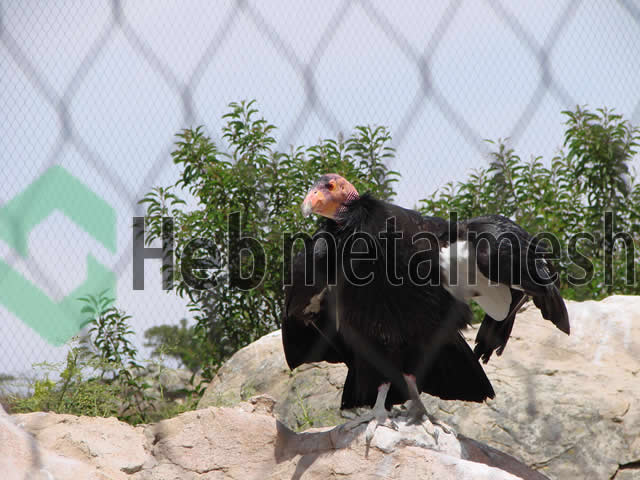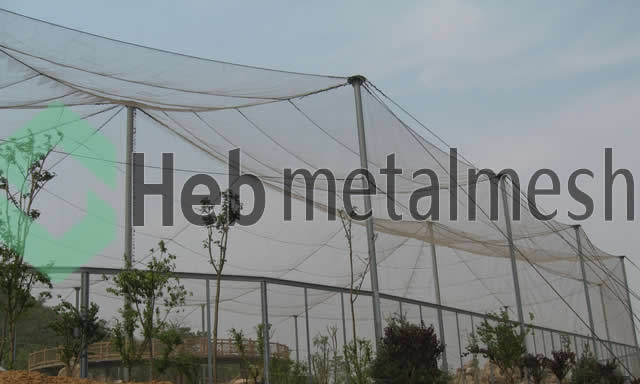Introduction to Aviaries and Their Benefits
Aviaries for birds are spacious enclosures designed to mimic a natural habitat, allowing birds to fly and engage in behaviors that are essential to their well-being. Unlike traditional bird cages, which can often restrict movement, aviaries provide a more open and enriching environment. This design promotes both the mental and physical health of birds by providing space for exercise, socialization, and exploration.
One of the primary benefits of aviaries is the enhanced quality of life they offer. Birds are active creatures that thrive on the ability to fly, climb, and interact with their surroundings. Aviaries can be equipped with natural branches, plants, and other enriching materials, stimulating birds to engage in their instinctive behaviors. This, in turn, helps prevent common issues associated with confinement, such as boredom and behavioral problems.
There are various types of aviaries available, catering to different needs and preferences of bird owners. Outdoor aviaries are particularly popular among bird enthusiasts, as they allow birds to experience natural sunlight, fresh air, and the sounds of nature. These outdoor spaces can be designed to accommodate various species, offering a safe haven for birds while protecting them from predators. Furthermore, seasonal changes can enhance the experience for the birds as they interact with different elements of the environment.
Indoor aviaries also exist and serve as a functional alternative for those who may not have the space for an outdoor setup. Indoor aviaries can still provide a stimulating environment with appropriate decor and ample space, ensuring that the birds’ needs are met even within a confined space. Whether an aviary is set up indoors or outdoors, it stands as a testament to the dedication of bird owners who prioritize the welfare and happiness of their feathered companions.
The Advantages of Using Aviaries for Birds
Aviaries for birds present numerous advantages over conventional bird cages, revolutionizing the way we accommodate our feathered companions. One of the primary benefits of an aviary is the substantial increase in space it provides. Unlike traditional cages, which often restrict movement, aviaries allow birds to flutter, stretch their wings, and engage in natural flight behaviors. This open environment fosters a more active lifestyle, contributing positively to their physical health.
Furthermore, aviaries facilitate social interaction among birds, which is crucial for their emotional and psychological well-being. In a more spacious setting, multiple birds can coexist harmoniously, allowing them to develop social bonds that are essential for their mental health. This communal aspect of aviaries encourages playful behaviors and stimulates vocal communication, enhancing their overall quality of life. Each bird can express its natural instincts without the constraints typically imposed by standard cages.
The design of aviaries often includes various perches, toys, and climbing structures, creating an enriched environment that engages the birds’ innate curiosity. This type of stimulating habitat caters to their mental needs, reducing boredom and the potential for stress-induced behaviors. Being able to explore different levels and interact with toys not only promotes exercise but also encourages birds to exhibit their natural behaviors, boosting their confidence and happiness.
In contrast to traditional cages, which can sometimes confine birds to a solitary existence, aviaries offer an abundant space filled with diverse stimuli. This enriching environment is fundamental in promoting healthy social dynamics and physical activity, which are vital for pet birds in captivity. Therefore, aviaries for birds stand out as a superior choice for enhancing the well-being of our avian friends.
Essential Features of the Best Aviaries for Birds
When considering the construction or purchase of an aviary for birds, several key features must be taken into account to ensure an optimal living environment for avian inhabitants. Firstly, size is a crucial factor. An adequately sized aviary allows birds to fly freely, engage in natural behaviors, and socialize with other birds if desired. The dimensions should accommodate the specific species of birds, as different types have varying space requirements. For instance, larger species like macaws necessitate ample room, while smaller finches can thrive in moderately sized spaces.
Safety considerations also play an integral role in aviary design. The structure must be sturdy and secure, protecting birds from potential predators and harsh weather. Employing high-quality materials is vital; one recommended option is ‘zoo mesh.’ This heavy-duty mesh not only ensures safety from predators but also allows for optimal airflow and visibility, enhancing the overall environment for the birds. Additionally, selecting corrosion-resistant materials is essential, especially for outdoor aviaries exposed to the elements.
Environmental enrichment is another essential feature of the best aviaries for birds. Incorporating various perches, toys, and natural foliage stimulates mental activity and physical exercise. Providing diverse habitats within the aviary, such as sheltered areas and open spaces, allows birds to explore and feel secure simultaneously. This variability mimics their natural habitats, contributing to the birds’ overall well-being. Furthermore, ensuring appropriate access to sources of fresh water and food will help maintain their health in the aviary.
In summation, when designing or selecting an aviary for birds, one must prioritize size, safety, and environmental enrichment. These elements combined will create a nurturing and enjoyable habitat for various bird species, enhancing their quality of life.
How to Make an Outdoor Aviary for Birds
Creating an outdoor aviary for birds can transform your yard into a vibrant sanctuary that provides safety and comfort for feathered friends. The first step in this DIY project is to conduct thorough planning. Begin by researching the specific needs of the bird species you intend to house. Different species require varied space, shelter, and perching options. Based on your research, sketch a design that accommodates these specifications while ensuring ample room for birds to move and fly.
Next, consider the materials necessary for constructing the aviary. You will need sturdy materials that can withstand the elements and keep your birds secure. Recommended materials typically include galvanized steel or aluminum for the frame, along with wire mesh that is small enough to prevent escapes. Additionally, ensure you have wood or other materials for perches and nesting boxes, as these elements are crucial for providing a comfortable habitat. Collect all necessary tools, such as a saw, drill, and measuring tape, as part of your preparation.
Once you have your design and materials ready, choose an appropriate location for the aviary. Ideally, select an area that offers partial shade and protection from extreme weather conditions. Clear the area of debris and ensure a stable foundation for the structure. Assemble the frame according to your design, making sure it is robust and securely anchored to the ground. Attach the wire mesh to the exterior, leaving sufficient space for entrances and exits, which you can create using hinged doors for easy access.
Lastly, enhance the aviary’s environment with landscaping ideas that offer enrichment for your birds. Plant native trees and shrubs around the aviary to provide natural perches and shelter. Introduce a water feature such as a shallow bird bath to keep birds hydrated and happy. With thoughtful design and planning, your outdoor aviary can become a thriving habitat for birds, allowing them to thrive while providing you with enjoyment.
Understanding the Difference: Aviaries vs. Bird Cages
When exploring the best accommodations for birds, it is essential to understand the fundamental differences between an aviary for birds and a traditional bird cage. While both are designed to house pet birds, their characteristics, space, and impact on the well-being of the birds set them apart significantly.
The most noticeable distinction is the size and space offered by each option. An aviary for birds is typically larger, providing ample room for flight and exploration. This spacious environment allows birds to engage in their natural behaviors, such as flapping their wings, climbing, and socializing. In contrast, bird cages tend to be more confined, restricting movement and often resulting in a less stimulating environment for the inhabitants.
Usage is another aspect that differentiates the two. Aviaries are generally intended for multiple birds, promoting social interaction among them, which is vital for their mental health and happiness. Birds are inherently social creatures, and an aviary enables them to engage with their flock, leading to a more fulfilling life. On the other hand, bird cages are often designed for individual birds or small groups, which may limit their socialization opportunities and, ultimately, their overall well-being.
The impact on health is critical when selecting between these two housing options. Aviaries foster an environment that encourages exercise and interaction, which contributes positively to physical and psychological health. Birds that reside in an aviary have the chance to display natural behaviors that are important for their development and happiness. Conversely, prolonged confinement in a bird cage can lead to health issues, including obesity and behavioral problems stemming from boredom or lack of interaction.
In conclusion, the choice between an aviary for birds and a bird cage depends on multiple factors such as space, the number of birds, and the desired interaction levels. Understanding these differences is crucial for ensuring that birds thrive and experience the quality of life they deserve.
Choosing the Right Size for Your Aviary
When considering an aviary for birds, selecting the appropriate size is a crucial factor that directly impacts the well-being of your feathered companions. Each species of bird exhibits unique behaviors and requirements, particularly regarding space. For instance, small birds such as budgerigars or canaries may thrive in relatively compact environments, whereas larger species, like parrots and cockatoos, necessitate significantly more room to exhibit their natural behaviors.
To determine the right dimensions for your aviary, start by assessing the number and species of birds you intend to house. A simple guideline is to allow a minimum of 10 square feet for each small bird and at least 20-30 square feet for medium-sized birds. Larger birds usually require an even more generous allocation of space, which can range from 40 square feet upwards, depending on the species. An aviary that is too small can lead to stress, aggression, and health issues as the birds may be unable to engage in essential activities such as flying, exploring, and socializing.
It is also important to note the vertical space of the aviary, as many birds, especially species that are natural fliers, benefit from height in addition to width. Providing perches at varying heights can encourage exercise and reduce territorial disputes. Additionally, designing your aviary with multiple compartments may be beneficial for housing different species or even managing breeding situations. Adequate space in the aviary not only promotes physical health but also fosters psychological well-being, mimicking a more natural environment for your birds to flourish.
Optimal Location for Your Outdoor Aviary
The location of your outdoor aviary plays a vital role in the health and well-being of your birds. Selecting an optimal spot requires a careful assessment of several environmental factors. One of the first considerations is sunlight exposure. Birds benefit from natural light, which is essential for their physical health, including the production of Vitamin D. However, it is crucial to balance sunlight with shade. A space that offers a combination of direct sun and shaded areas will help prevent overheating during hot weather while allowing birds to enjoy the benefits of sunlight.
In addition to sunlight, shelter from harsh weather conditions is paramount. An aviary should be positioned in an area where it can be shielded from strong winds, heavy rain, and extreme temperatures. This may involve strategically placing it near trees or hedges, which can act as natural windbreaks. It is also advisable to avoid low-lying areas that might flood during heavy rainfall, as moisture can lead to various health issues for the birds.
Moreover, the potential threat from predators should be taken into account when selecting the site for your aviary. Ensure that your aviary is placed in a secure area away from potential threats such as cats, hawks, or other predatory animals. Installing protective measures such as secure netting or protective barriers can further shield your birds from these risks.
Overall, a carefully chosen location for your outdoor aviary can create a harmonious environment that promotes the health and happiness of your birds. By considering sunlight, shelter, and predator protection, you will be well on your way to establishing a thriving aviary for birds that fosters their natural behaviors and enhances their quality of life.
Maintenance Tips for Your Aviary
Proper maintenance of an aviary for birds is essential to ensure the well-being of your feathered inhabitants and to uphold the structural integrity of the environment. Regular cleaning routines form the cornerstone of effective maintenance. It is advisable to clean the aviary at least once a week, focusing on removing waste, uneaten food, and any mold that may develop in the corners. This is crucial not only for aesthetics but also for preventing the spread of diseases among the birds.
Furthermore, monitoring the health of your birds should be a part of your regular maintenance checklist. Observing their behavior, eating habits, and the state of their feathers can provide valuable insights into their overall health. Any signs of illness or discomfort should be addressed immediately. Setting up a routine schedule for health check-ups by an avian veterinarian is also recommended to ensure that your birds receive vaccinations and screenings when necessary.
Providing fresh food and water is another critical aspect of maintaining an aviary. Birds require a balanced diet rich in nutrients, and their food should be refreshed daily. Similarly, clean, potable water must always be available. Regularly inspect drinking dishes to ensure they are clean and replaced with fresh water to prevent contamination.
Moreover, the aviary structure itself must be frequently inspected for any wear and tear. Check for broken perches, loose fittings, or areas where the material may have degraded. Immediate repairs should be made to prevent any accidents or escapes. Adequate ventilation is also vital; therefore, ensure that screens and openings are free of obstructions and that air circulation is optimal.
In summary, the regular upkeep of the aviary for birds is fundamental to fostering a safe and healthy environment. By adhering to these maintenance tips, you can create a thriving habitat that contributes to the overall happiness and longevity of your avian companions.
Where to Find Walk-In Bird Aviaries for Sale
When considering the purchase of a walk-in bird aviary, potential buyers have a variety of options to explore. Online marketplaces have emerged as a popular choice, offering a vast selection of aviaries for birds from various manufacturers. Websites such as Amazon, eBay, and specialized bird supply platforms provide extensive listings, allowing customers to compare prices, features, and customer reviews. This extensive review mechanism can greatly assist in ensuring that the chosen aviary meets individual requirements.
Additionally, local pet stores often carry a range of aviary options. Visiting these establishments allows potential buyers to physically inspect the products, assess the materials, and gauge the overall quality of the aviaries. Knowledgeable staff members are typically on hand to provide advice regarding the size and specific features suitable for their clients’ birds, ensuring that decision-makers are well-informed prior to making a commitment.
Specialty bird supply retailers present yet another avenue for sourcing walk-in bird aviaries. These businesses focus specifically on providing products tailored for avian enthusiasts, and often offer personalized consultations. Purchasing from a specialty retailer not only guarantees access to high-quality aviaries but also supports business owners who understand the needs of bird owners. Buyers should look for features such as the sturdiness of construction, ease of cleaning, and climate considerations, ensuring that the aviary provides a safe and comfortable environment for the birds.
Before finalizing any purchase, it is advisable to compare pricing across different platforms and retailers. Online reviews, warranty information, and return policies are also critical factors that can significantly influence the decision-making process. By taking these steps, buyers can confidently find the ideal aviary for their feathered companions.
Conclusion and Final Thoughts
In this guide, we have explored the intricate world of aviaries for birds, emphasizing their significant role in promoting the well-being of avian residents. By providing a spacious environment that mimics their natural habitat, aviaries become a sanctuary where birds can exhibit natural behaviors, socialize, and thrive. The benefits of creating an aviary extend beyond mere housing; they offer a remarkable opportunity for enrichment, fostering mental and physical health through social interaction and the freedom to fly.
Bird owners are encouraged to consider building their own aviary as a means to elevate their feathered friends’ quality of life. From selecting suitable materials and designs to ensuring proper maintenance and care, every aspect contributes to the overall success of the aviary. As discussed, the integration of ‘zoo mesh’ is a crucial element in constructing a safe and durable aviary. This specialized material not only offers enhanced protection against predators but also ensures that the birds can breathe and interact with the environment comfortably.
The experiences shared highlight that establishing an aviary is not merely a project; it is a commitment to creating an ideal habitat that nurtures the physical, emotional, and social aspects of birds. Properly designed aviaries support nesting, exploration, and species-specific behaviors, ultimately enriching the lives of both the birds and their owners. Creating a vibrant aviary for birds can also serve as a delightful focal point in one’s garden, bringing joy and tranquility while fostering a deeper connection with nature.
Ultimately, investing time and resources into establishing an aviary is an investment in the health and happiness of your birds, transforming your outdoor space into a natural paradise that benefits both avian inhabitants and those who care for them.


